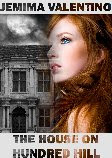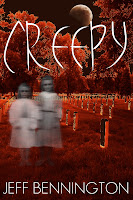POD Publishing. Predators & Editors. Writer's Digest. KONRATH. Triberr. BIG 6. Agent. No Agent. CREATE SPACE. LIGHTNING SOURCE. LULU. Beta Readers. Social Media. Pay with a Tweet. Kindle Nation. Cover Art. Twitter? Facebook. Blog? Kindle. Nook. KOBO. PDF. MOBI. ePUB. Brick 'n Mortar. Linkedin. Formatting. Price Point? .wtf?
Confused about indie publishing?
Try this.
Write.
Revise.
Proofread.
Edit.
Cover.
Format.
Publish.
Repeat.
In today's rapidly-changing marketplace, the process of writing and getting published is so overwhelming it can almost make your head spin.
You have to blog, market your book, and "tweet".
You can fill your life with everything except writing if you let yourself. Writing, it seems, has become more about social connections than actual writing, which is a good thing in its own way. But the process of indie-publishing, or "going rogue" as some like to call it, can feel overwhelming, even to the point of keeping you from moving forward.
Don't let the excitement and social buzz short circuit your writing goals. Going indie is easier than you think. That's not to say that you won't work hard, but it doesn't have to be overwhelming, if you stick with the basics.
First of all, be aware that unless you get LUCKY, you may have to sell several novels before you see a regular income stream. Bestselling indie author, Dean Wesley Smith, recently told my writer friend Gerard de Marigny that if he wants to write full-time, he'll need at least 15 books published.
The keys are quality and quantity.
The keys are quality and quantity.
Don't get bogged down with the details because the process is not as difficult as it seems. If you have a good book, follow these simple and easy steps to publishing a quality product.
Step 1: Write your book.
Step 2: Revise until your book is as good as you can make it.
Step 3: Get a few proofreaders to look at your story, but DO NOT let them be your editor (my opinion).
Step 4: Hire a professional editor. You need an unbiased editor to pick your work apart line by line. Expect to pay anywhere from $5-8 per 1000 words. Don't worry about recovering the expense. Worry more about the quality of your work. I use Neal Hock. He's affordable. And he's good.
Step 5: Create a killer cover. You can do this yourself or pay someone. I make my own cover art. I do everything at picnik.com and usually get nice comments about my book covers. A professional cover usually costs $200 or more. I'll make your cover for $99.
Step 6: Get your book formatted for ebook sales. You can use smashwords.com, but I think it's a hassle. I use Ted Dellaster from Dellaster Design. It usually costs around $50-$90, depending on word count, but he'll add pictures and links to your other books or other writers in your genre if you want to cross promote. The bottom line is, I am still 100% the publisher and I am ready to upload my work to all major ebook sellers without all the formatting hassles.
Step 7: Upload your file, cover art, book details and set your price. I recommend $2.99 and under for a first-time author.
Step 8: Repeat. Start writing your next book. You can market/seek reviews when you need a break.
There, wasn't that simple?
Publishing your book on Amazon and Barnes & Noble and other sites can be easy. I didn't touch on marketing because that's an entirely different conversation, and can branch into many arenas depending on your budget. You can start by visiting the nice folks at Indie Book Collective for marketing tips. You can get your book reviewed at my sister blog, The Kindle Book Review. I also recommend digitalbooktoday.com for free book publicity.
Don't worry about print yet. You are going to sell far more ebooks than print, hands down.
Remain focused and think QUALITY. You never know, your story could really take off, but if it doesn't, don't let that bother you, because even the bestselling authors know that "books sell books".
Keep writing. BOOM!
P.S. ~ Feel free to check out my books to the right (ebook or print) and investigate my interior formatting. I do that myself, too.













